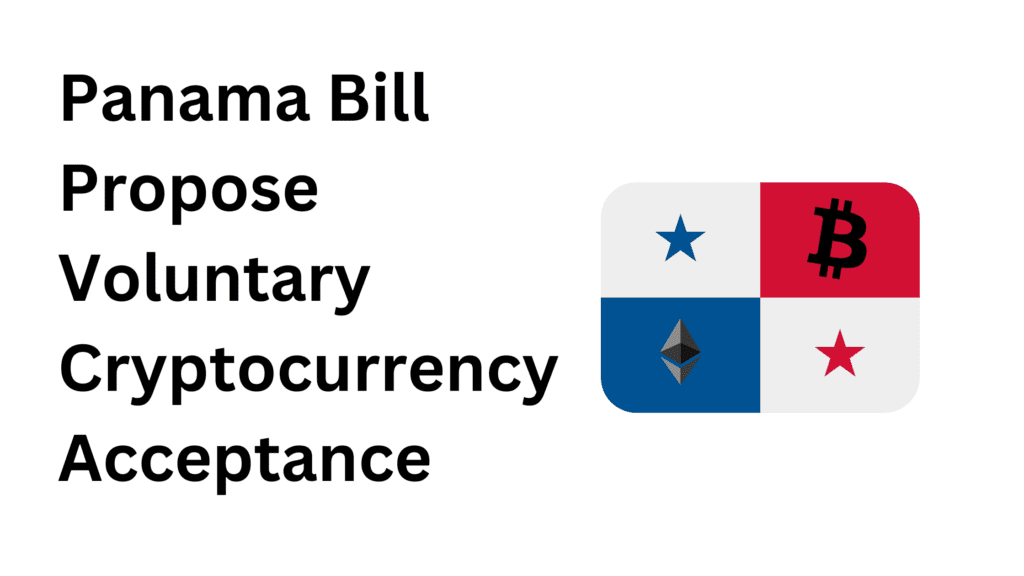The Panama Bill on crypto assets, which have mostly remained unregulated, are gradually emerging as a regulated asset class thanks to the new regulatory frameworks adopted by several countries. Panama, a Central American country, is taking a progressive step in crypto regulation with a new bill that proposes the voluntary acceptance of digital assets for payments. Unlike El Salvador, which made Bitcoin legal tender, Panama’s approach focuses on allowing businesses and individuals to accept crypto without mandatory enforcement.
The proposal could make Panama a crypto-friendly hub, boosting financial inclusion and attracting blockchain innovation. It would be interesting to understand what the bill entails, its potential impact, and how it compares to global crypto regulations. Let’s dig in.
What Does the Panama Crypto Bill Propose?
The proposed legislation aims to modernize Panama’s financial ecosystem by integrating crypto payments into its economy. However, unlike El Salvador’s Bitcoin Law, this bill underlines voluntary adoption rather than conferring legal tender status on crypto.
Key Aspects of the Panama Bill:
- Voluntary Crypto Payments – Businesses can accept crypto for transactions in goods and services but are not obligated to do so.
- Multiple Cryptos Allowed – The bill does not limit payments to Bitcoin; it includes Ethereum, stablecoins, and other digital assets.
- Legal Framework for Crypto Services – The bill envisions a transparent regulatory environment for crypto exchanges, payment processors, and blockchain startups.
- Cross-Border Transactions – The bill seeks to simplify remittances and international transactions using crypto, reducing reliance on traditional banking systems.
Why is Panama Considering Crypto Adoption?
1. Financial Inclusion & Economic Growth
- Most of Panama’s population remains unbanked, and crypto payments could provide an alternative financial system.
- Businesses could benefit from lower transaction fees and faster payments than traditional banking.
2. Attracting Foreign Investment & Innovation
- Panama’s crypto-friendly stance could make it a regional hub for blockchain startups and digital finance companies.
- Clear regulations may encourage international businesses to operate in Panama, boosting the local economy.
3. Cross-Border Transactions & Remittances
- Panama is an international trade and financial center, and crypto could simplify remittances for workers sending money home.
- Faster, cheaper cross-border payments could reduce reliance on SWIFT and the traditional banking system.
Read More: Treasury Bills in India: Definition, Status, and Rates
How Does Panama’s Bill Compare to Other Countries?
Panama vs. El Salvador
- El Salvador: Bitcoin is legal tender, meaning businesses must accept it alongside fiat currency.
- Panama: Crypto adoption is optional, allowing businesses to decide whether to accept digital assets.
Panama vs. United States
- US: Crypto is treated as property for income tax purposes and taxed accordingly, with strict regulations on exchanges and transactions.
- Panama: The bill aims to introduce user-friendly regulations while keeping crypto acceptance voluntary.
Panama vs. Europe
- EU: Implemented MiCA regulations, which provide a standardized framework for crypto across Europe.
- Panama: Aiming for a more flexible, business-friendly approach that does not impose strict compliance requirements.
Read More: What are treasury bills, and how do they work
Potential Challenges & Concerns
While the bill could make Panama more crypto-friendly, some challenges remain:
- Regulatory Uncertainty – The bill needs to include clear tax guidelines and anti-money laundering (AML) policies.
- Banking Sector Resistance – Due to compliance concerns, traditional banks may hesitate to work with crypto businesses.
- Price Volatility – Crypto assets like Bitcoin and Ethereum experience high volatility, which could impact businesses accepting them.
- Government Approval – The bill must pass through legislative processes, and political opposition could delay or modify its implementation.
Final Thoughts: A Step Toward a Crypto-Friendly Panama
Panama’s crypto bill represents a balanced approach to digital asset adoption by promoting voluntary use instead of forced integration. If passed, the bill could:
- Encourage innovation by attracting blockchain startups and crypto businesses.
- Improve financial accessibility for the unbanked sections of the population.
- Boost cross-border payments by reducing costs and increasing efficiency.
However, regulatory clarity, banking partnerships, and adoption rates will determine whether Panama will emerge as a leading crypto hub in Latin America. As the global crypto landscape evolves, Panama’s progressive stance could influence other countries to consider similar frameworks for digital asset adoption.
1. Is crypto allowed in Panama?
Yes, crypto is allowed in Panama. There are no laws prohibiting its use.
2. Is Panama good for crypto?
Yes, Panama is considered crypto-friendly due to minimal regulation, no capital gains tax on crypto, and growing adoption.
3. Is crypto taxable in Panama?
No, crypto is not currently taxed in Panama if the income is earned outside the country.








